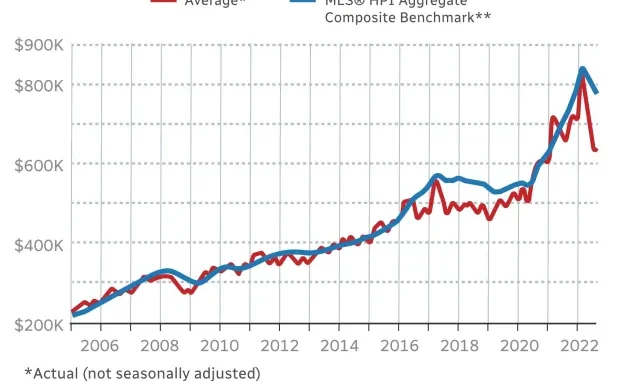
In a tale of revival amidst chaos, Canada’s housing market has displayed encouraging signs of recovery following a prolonged slump.
After months of grappling with a struggling housing market, the Bank of Canada in April stopped its interest rate hikes, maintaining the benchmark rate at a 15-year high of 4.50 percent since January. This decision appears to have contributed to the recent housing market revival.
Interestingly, higher borrowing costs have had a lesser financial impact on homebuyers than initially anticipated, thereby preventing a supply flood from forced sellers.
However, the resurgence in the housing sector comes when higher borrowing costs are anticipated to hinder economic growth. Analysts warn that the upswing in the housing market could potentially lead to inflationary pressures, complicating the central bank’s plans to implement interest rate cuts.
“The Bank of Canada at the end of the day is probably not going to be too thrilled if the housing market really starts to ramp up,” Robert Kavcic, a senior economist at BMO Capital Markets, told Reuters.
Market Performance and Regional Impacts
The Greater Toronto Area, Canada’s most populous metropolitan region, witnessed a noteworthy improvement in April, with the average home price rising for a third consecutive month on a month-over-month basis.
Similarly, other major markets across the country have also experienced gains, signaling a broader recovery trend, Reuters reported.
Surprisingly, despite the higher borrowing costs, mortgage delinquency rates have remained relatively low in Canada. Implementing stress tests, ensuring borrowers can manage their mortgages even with interest rates two percentage points higher than their loan rate, has contributed to this stability.
Additionally, variable-rate borrowers have been shielded from the impact of higher interest rates as lenders temporarily extended the amortization period, thereby keeping their payments unchanged. The absence of forced selling has played a crucial role in stabilizing the housing market swiftly.
However, the optimistic scenario could face challenges in the coming months.
Royal Bank of Canada has recently cautioned about the potential increase in mortgage delinquencies by over a third in the coming year, posing a risk to the housing market’s stability.
There is also apprehension about the potential spillover effects from stress in the U.S. regional banking sector into Canada. Clues about such risks may emerge from the Bank of Canada’s Financial System Review, an annual assessment of the nation’s financial system tensions, scheduled for release soon.
However, supply shortfalls, record levels of immigration, and the labor market’s strength could support Canada’s housing market’s recovery.
Source: www.wionews.com
ENB
Sandstone Group



